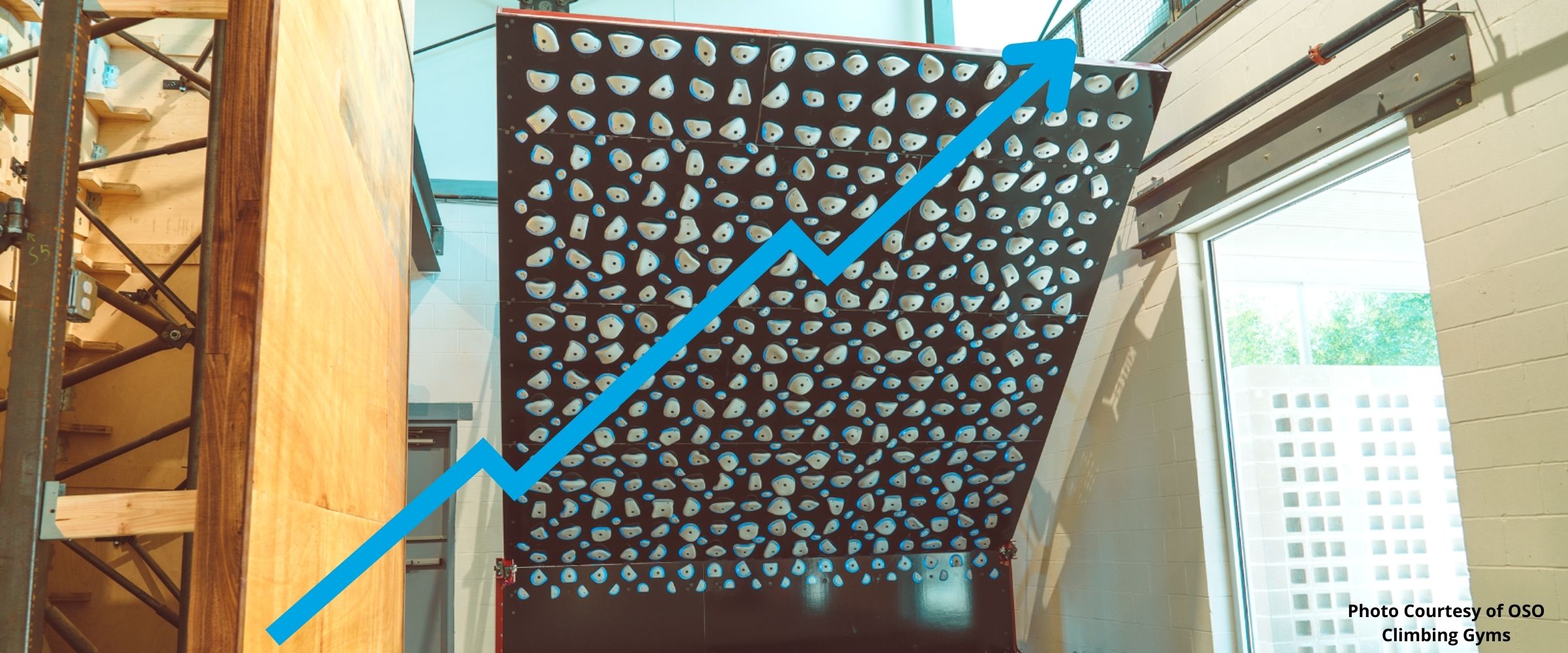Why You Should Think About Scaling Up

Brick and mortar businesses like ours only have so much they can grow – a space to house what we offer, a space to house those that make or deliver what we offer, and after that...no more. That’s why it's important to consider scaling: growing beyond the single location and duplicate processes that work.
More and more climbing gym operators are seeking multiple locations and consolidating costs to make more money. And more are starting conversations with each other to capitalize on the strengths and weaknesses between organizations.
Here are five reasons to consider scaling your climbing gym business and how to get started:
1. You’ve already got the business skills to make it go
You’ve been running your business for a while. The systems are working and your staff is a well-oiled machine. You’ve created a dynamic culture and you’re seeing daily how your members and visitors are loving what you have given them.
No more learning curve, you are sitting pretty, you fully understand what’s going on, and now there are other areas that could use your support. Why not you?
Maybe it’s not even a full-scale gym we’re talking about – maybe you excel in marketing, management, customer service. Could you help the gym down the road?
2. Provide upward mobility for your staff
If you’ve only got one or two gyms, even the best people will eventually move on as they seek a change and grow professionally. Small organizations simply can’t hold onto people as long as ones that provide development and promotion opportunities. Sure, that person might be a coach now, but the potential to become a coaching director might put a little sparkle in their eye to work toward. If you’re small scale you can’t do that for them, and they’ll have to look elsewhere.
3. Work together with others in your community
When you look around at local gyms, or even nationally, and you talk to other operators, are you finding that they have weaknesses that are your strengths?
We all know that climbing can change peoples’ lives for the better, and what better way to do that than to extend your strength to others with your processes, staff talent, and experience.
It’s important, too, to consider if you’ve got a weakness that you’ve seen another organization do well - perhaps consider taking the next step to reach out and ask if they might be interested in partnering to share cost and efficiency. Let them cover your weaknesses and watch you both achieve your long-term goals as a result!
4. Take home more money for yourself!
One of the not-so-obvious and best reasons to scale is simply that if you’re already executing a system, it takes very little energy to do it for another organization – marketing can be duplicated, training processes remain the same, and insurance can actually be cheaper when you get into a different bracket.
5. Keep it interesting and force yourself to improve
One of the main reasons for burnout and people leaving their jobs is lack of challenge. If you do the same thing every day and it’s good enough, you can get stagnant and miss opportunities that are just plain interesting. Having to keep growing, improve systems, and keep asking questions of your staff and members because you have a bigger picture keeps it absolutely fresh, every day.
You can even hire a few more people to help you and the costs of all of those things can be shared between both locations. You’re no longer paying your salary or that of your managers, you’re only paying half at each gym – and probably getting a lot better result: and that’s more money you get to keep in the long run!
While not every organization is ripe for scaling, its benefits should be something every operator considers. Not scaling means that you leave yourself vulnerable to better operators with more resources. Doing something the way you always have can be great, but business rewards growth and being aware of what’s out there can protect your already smashing climbing gym success.
About the Author
 Kristin Tara Horowitz is CEO of The Pad Climbing. Formerly SLO Op, the country's first nonprofit climbing gym, it's now a multiple location intra-state venture. She built the first gyms with her bare hands alongside friends and crowdfunded them before it was cool. Eating roadblocks for breakfast, she works smarter, not harder in order to change lives through climbing.
Kristin Tara Horowitz is CEO of The Pad Climbing. Formerly SLO Op, the country's first nonprofit climbing gym, it's now a multiple location intra-state venture. She built the first gyms with her bare hands alongside friends and crowdfunded them before it was cool. Eating roadblocks for breakfast, she works smarter, not harder in order to change lives through climbing.
